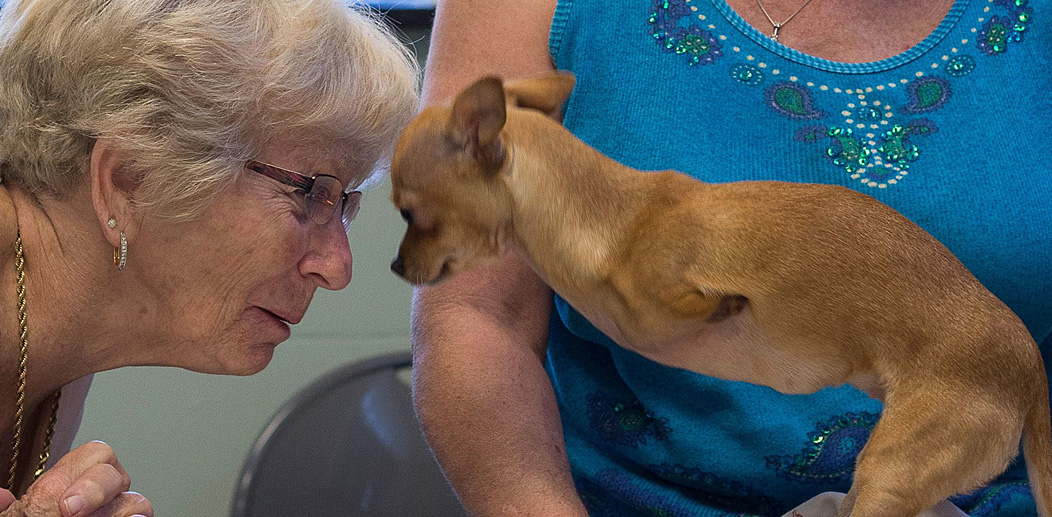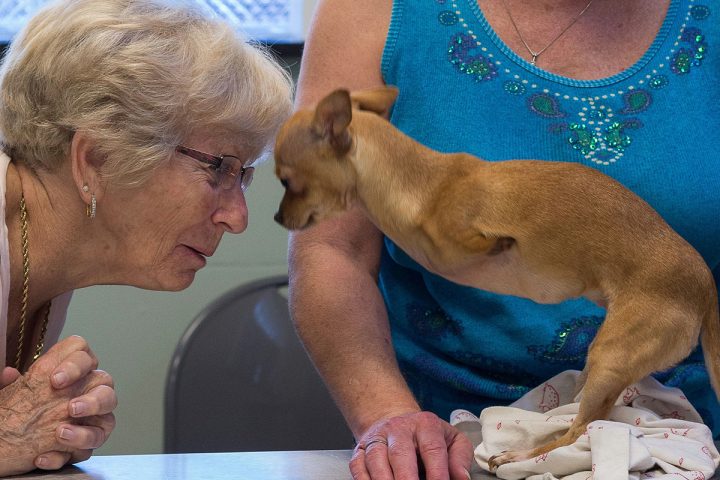Special Pets Need Special People

Special needs pet is a broad term without a universal meaning. It includes a range of physical disabilities, chronic medical conditions, and behavioral issues that require ongoing vigilance or special care. Animals with obvious physical distinctions such as missing, deformed, or paralyzed limbs, or those with functional limitations such as blindness or deafness are considered special needs. Less obvious are those with health conditions such as diabetes or those with behavioral issues such as separation anxiety. Previously abused animals and senior animals may also fall into this category.
Many people would likely be hesitant to adopt a special needs pet, but in most respects, they’re really no different than any other pet. Special needs pets are not defined by their circumstances. They’re not even aware that they’re different from other animals of their kind. First and foremost each is just a dog or a cat with the same capacity to love as any “normal” pet.
And, as they should with any companion animal, special needs pet parents must be completely committed to providing all care the pet will need throughout its entire life. However, this commitment can be substantially greater when dealing with special needs. Before adopting a pet that will need exceptional care, it’s important to have a very clear picture of the challenges you may face. Talk to your veterinarian and to other pet parents who have adopted a cat or dog with the same issues. Learn about the type of care that will be required at various stages of the animal’s life. Knowledge and preparedness will ensure a successful adoption and a long and enriched lifetime with your pet.

Among the important considerations:
Fit: Consider your existing family and whether or not a special needs pet could adjust to your home environment and schedule. Is the pet a good fit for a family with other pets and/or children?
Costs: Are you able to make the financial commitment that comes with adopting a special needs pet? The costs could be minimal or significant depending on the specific special need. Consider the ongoing costs of medications, special food, routine or specialized veterinary care, and/or behavioral consulting or training.
Time: It takes time for any new pet to adjust to a new environment. Some special needs pets, such as those that are deaf, blind, or have lost a limb, will require little or no extra time. Others, such as those with behavioral issues, will have a lengthy adjustment period and may require extra time, patience, and vigilance for the rest of their lives. In some cases, a pet—such as one with separation anxiety—cannot be left alone for long periods of time. Pets with chronic conditions, such as diabetes or epilepsy, will need to be given medications on a strict schedule.
There is no shortage of special needs pets in local shelters and rescues. On average, they wait four times longer to be adopted. Don’t overlook them. There may be some challenges, but the rewards of knowing you have saved an extraordinary life will be significant. Plus the human/animal bond is often stronger with a special needs pet. As has been said, “The more difficult the challenge, the greater the reward.”

